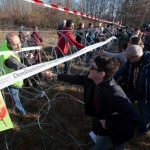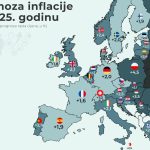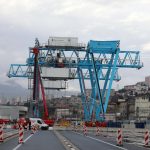ZAGREB, May 18, 2018 – Interior Minister Davor Božinović said on Thursday in the coastal city of Šibenik, where he was attending celebrations for Šibenik-Knin County Day, that all institutions are equally responsible for the perception of the fight against corruption – the government, judiciary, state prosecutors, the USKOK anti-corruption office, and the Interior Ministry.
“As far as the Interior Ministry and police are concerned, we have taken a pro-active approach to combating corruption. It isn’t enough to just wait for complaints to be filed, even though that is a good starting point in investigating possible crimes. Police officers are undergoing intensive education and training how to take preventative action, not just those specialising in combating corruption but all police officers who should be able to recognise elements of corruption in their line of work and then hand it over to their professional colleagues,” Minister Božinović said.
Corruption falls in the grey zone of crime, and a preventative and pro-active approach in fact is the best way to deal with it because anyone involved in corruption won’t come forward of their own accord, he underscored. “A pro-active approach and stronger cohesion of relevant services, institutions and government components is the way we should be heading, with intensified training for the ministry’s staff. That path should result in Croatia advancing on the European ladder and joining the top ranking countries in efficiently combating corruption,” the minister added.
Asked whether there were concrete steps in that regard, Božinović said that concrete results exist but that he could not talk about the cases being worked on.
With regard to a possible new migrant wave, the ministry has ordered seven police administrations to tighten controls on the border, and the minister said that these were not extraordinary measures.
Media has released various information and figures that do not correspond to the reality, but the fact is that 16,500 refugees entered Turkey and Greece this year and they are heading in various directions. One route will certainly be across Croatia and our analysts have assessed various measures to prevent a possible emergence of larger groups of migrants. It is important that we have launched an intensive diplomatic initiative, particularly toward countries along the Balkan route, because on the one hand they are possible candidates for EU membership and on the other hand the question of how to manage borders and migrations is one of the issues that will be additionally analysed, Božinović said.








